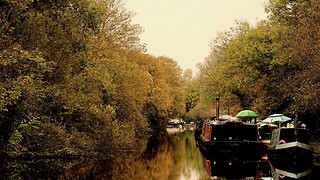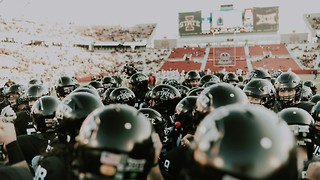Blood, sweat and sequins: run away with the circus this exam term!
Emma Wright reflects on her experiences of circus performance and gives an insight into the magical world of the Cambridge circus scene

Things have changed quite a lot since the days of traditional big top circuses in muddy fields surrounded by caravans.
Whilst travelling circuses still exist across the world and in the UK (though mercifully without the animal cruelty these days), you’re more likely to find a trapeze in a theatre than in a field. In the past 50 years or so, there has been an increase in contemporary circus across the world, usually mixing circus skills with physical theatre. Events like CircusFest in the Roundhouse, or the London Wonderground in the Southbank draw ever bigger crowds year on year. Circus schools now offer degrees in various skills and the National Centre of Circus Arts (formerly known as Circus Space) has just been given official recognition as the first pure circus skills degree available for students.
Circus is a large and varied beast. In aerial dance alone the apparatus includes trapezes, silks, aerial hoops, ropes, and cloud swings before getting to the more unusual items such as aerial cubes, nets or chains. Ground-based acts can cover anything from juggling (balls, rings, clubs), staff, hula hoop, poi, stilts, unicycling, balance (tightwire, slackline or slackrope) or rola bola. Then there are non-apparatus based skills such as tumbling, contortion or handbalancing. And this hasn’t even touched on the more obscure such as Russian Swing or Wheel of Death. The list goes on and on. But that’s the beauty of circus. There is no limit.
Whether you're a drama type who loves the costumes and characters, the athletic who wants to show off physical skill or the precisionist who adores the dexterity required for some of the acts, there will be a kind of circus that suits everyone. "Circus gives you the direction and thought of mind to push your body and your imagination to the limits… it opens a world of creativity through movement. It has a massive positive impact on your strength, flexibility, co-ordination and fills you with a sense of achievement and success," says Luke Tampert'ore James, member and teacher of Cambridge Community Circus. Circus skills "are an artform, inspired by variety of movement and the ability to convey emotions, thoughts and feelings," he continues. And from a Cambridge student perspective, the ability to get out of your own head and do something so far from academia is essential to surviving your degree.

My own circus journey started relatively recently, having spent most of my childhood more interested in books that balance. I do not come from an athletic background and I didn't take part in gymnastics or any form of dance as a child. So when I announced to my parents about two years ago that I was taking circus lessons with the intention of pursuing it as a career, they were a tad surprised. My journey into the wonderful world of circus started with the gateway hobby of pole-dancing. Towards the end of my first year I trotted along to Cambridge Community Circus, and then started taking training seriously at the beginning of my second year, specialising in aerial dance, primarily in static trapeze. In the summer of 2013 I enrolled in Zippo Circus’s Academy of Circus Arts summer programme, a travelling traditional circus school that taught you how to put up a big top and serve the candyfloss as well as the circus skills to make an act. Since last summer, my focus has (tragically) been my degree, but after graduation this year the intention is *fingers crossed* to pursue a career in teaching and performing circus skills.
Without Cambridge I never would have found circus. The opportunities to learn and perform circus in this city are almost limitless, but I shall try and do justice to the most prevalent opportunities available. Cambridge Community Circus is certainly prevalent. Cambridge Community Circus was founded in the late 1980s as the lovechild of a juggler and a dramatist. Their dream was a place for people of any age or background to come and learn circus skills in a safe community. The group started out as a three hour weekly workshop on a Sunday with only a handful of people and has survived a venue change to become a community group boasting nearly one thousand members to its facebook group and countless classes in all manner of skills. There are aerial and ground based classes nearly every day of the week as well as a daily open practice session for people to pursue their own training and a youth circus on Sundays. The group has managed to stick to its non-profit roots, despite losing funding over the years, and runs on an almost entirely voluntary basis.
It’s unique in that it’s one of the largest community-run circuses in the country, making it a strong asset to Cambridge as a city. "It’s community run so it’s really affordable, which is so important for students. And it’s such a friendly atmosphere for sharing skills and learning from each other", said Alison Woodman, member of CCC. Luke Tampert'ore James describes it as "a nurturing environment that allows you to improve from others".
I am indebted to CCC with regard to my circus abilities. More information regarding CCC can be found on their website or Facebook group, or come along to Strawberry Fair on 7 June to see a show and demos throughout the day. Cambridge also has its own homegrown company that deals with the majority of the fire, glow and circus performances in the area, Wildfire Productions. You will no doubt see them at the majority of the May Balls this year, if you haven’t caught them already at various events over the previous years.

In the University specifically, there are several societies that are related to circus skills. The Cambridge University Juggling Society has been going for many years and have regular weekly meetings. Through the society, Cambridge is also host to the juggling convention Camvention (October this year), which has recently been revived by Katie Struthers (to name one among many) from a substantial hiatus. They often run workshops for all abilities and games sessions too, and without them I doubt I’d have ever got around to learning how to juggle. The Cambridge University Fire Troupe also meet weekly for all things fire-related. This can include fire staff, poi and hula hoop though the limit is really your own imagination. And new of this year, the university has just established an Aerial Arts Society. They meet at Newnham twice a week and currently only offer pole dancing, but may be expanding in the future.
The shift in the world of circus towards contemporary fusions between skills and physical theatre, the new range of places where these skills are taught, and the rise in fitness classes such as aerial mean that circus is becoming more accessible to the masses. There are some who dislike this move away from its traditional roots, but, no matter where you stand on the evolution of circus, there is one thing everyone can agree on. Circus will always be the greatest show on earth.
 Science / Who gets to stay cool in Cambridge?7 September 2025
Science / Who gets to stay cool in Cambridge?7 September 2025 News / Tompkins Table 2025: Trinity widens gap on Christ’s19 August 2025
News / Tompkins Table 2025: Trinity widens gap on Christ’s19 August 2025 News / Government allows Gazan students to take up university places6 September 2025
News / Government allows Gazan students to take up university places6 September 2025 Features / Meet the Cambridge students whose names live up to their degree9 September 2025
Features / Meet the Cambridge students whose names live up to their degree9 September 2025 News / Two pro-Palestine demonstrations held in past week8 September 2025
News / Two pro-Palestine demonstrations held in past week8 September 2025









